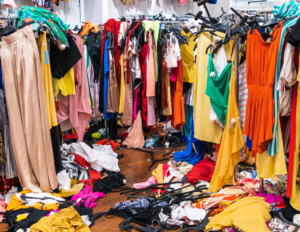Forget buzzing superheroes, the real marvels in our world are the miniature marvels flitting between flowers – pollinators. These tiny allies, with bees taking center stage, are the unsung heroes of our ecosystem, silently ensuring a vibrant tapestry of life on Earth. But their buzz faces a growing threat, jeopardizing not just the delicate balance of nature, but our food security.
Imagine a world without apples, blueberries, or even chocolate. That stark reality could become our future if we neglect the vital role pollinators play in plant reproduction. A staggering 75% of the world’s food crops rely on these winged warriors for pollination, a dance that ensures the transfer of pollen from flower to flower, resulting in the fruits and vegetables we rely on. According to the Food and Agriculture Organization (FAO), the economic value of pollination services globally exceeds €200 billion annually [1].

But this delicate dance is under threat. Habitat loss due to deforestation and urban sprawl shrinks the vital floral resources these tiny acrobats need to thrive. Pesticides, the very weapons we wield against agricultural pests, often end up inadvertently poisoning our winged allies. Climate change disrupts their delicate seasonal cycles, throwing their foraging patterns into chaos [2]. And then there’s colony collapse disorder (CCD), a mysterious malady that decimates beehives, raising concerns about the long-term health of these crucial pollinators [3].
The consequences of this decline are far-reaching. A 2018 study published in Nature Plants predicts a 40% drop in bee populations could lead to a €340 billion loss in agricultural output globally by 2030 [4]. This isn’t just a statistic; it’s a stark reminder that our sustenance hangs in the balance with every lost bee.

However, amidst the buzz of concern, there’s a chorus of hope. Conservation efforts are blooming across the globe. Individuals can transform their gardens into bee havens by planting a kaleidoscope of native wildflowers [5]. Communities are supporting local beekeepers and advocating for pesticide-free zones. Governments are enacting stricter regulations on harmful chemicals and investing in pollinator-friendly agricultural practices [6].
The future of our food security and the symphony of life on Earth hinges on the fate of these tiny pollinators. By understanding their plight and taking action, we can ensure their wings continue to beat, their buzz continues to fill the air, and their vital role in our ecosystem remains secure. Every bee saved, every flower planted, every conscious choice we make is a step towards a future where these miniature marvels continue to thrive, ensuring the bounty of our world for generations to come.

Sources:
[1] Food and Agriculture Organization of the United Nations. (2018, May 20). The importance of pollinators for food security. https://www.fao.org/3/I9527EN/i9527en.PDF
[2] Goulson, D. (2010). Bumblebees: Behaviour, ecology and conservation. Oxford University Press.
[3] VanEngelsdorp, D., Hayes, J., Underwood, R. M., & Pettis, J. (2008). A survey of honey bee colony decline in the United States, fall 2007. Journal of Apicultural Research, 47(1), 70-76. https://pubmed.ncbi.nlm.nih.gov/19115015/
[4] Potts, S. G., et al. (2016). Global pollinator declines: Trends, impacts, and drivers. Nature, 534(7607), 557-566. https://www.sciencedirect.com/science/article/abs/pii/S0169534710000364
[5] The Xerces Society. (n.d.). Bee-friendly gardening. https://xerces.org/pollinator-conservation/pollinator-friendly-plant-lists
[6] Pollinator Partnership. (n.d.). Pollinator-friendly agriculture. https://www.pollinator.org/consulting/corporate-and-agricultural-sustainability
Further Resources:
The Bee Lab: http://www.beelab.org/
Friends of the Earth: https://www.foet.org/
The Pollinator Project: https://pollinator-project.org/




